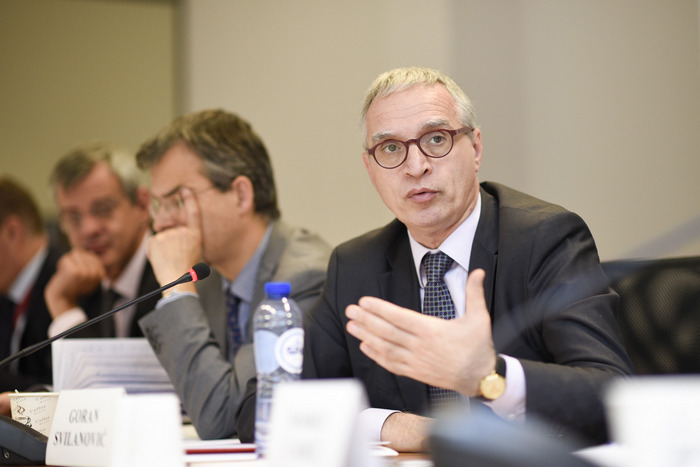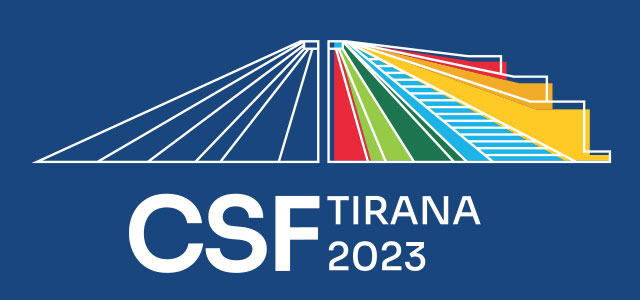RCC-prepared Multi-annual Action Plan on a Regional Economic Area in the Western Balkans is in Centre of the Berlin Process

The Berlin Process, initiated back in 2014 with the Conference of Western Balkan States in Berlin, aimed to consolidate the regional efforts and keep the dynamics in EU integration process amidst growing Euroscepticism in the region on one side and enlargement fatigue on the other. It gave a new impetus to the entire regional cooperation process, positioning the Regional Cooperation Council (RCC) as a central hub for communication both within the region and between the region and the EU. The Summits that followed (in Vienna, 2015; Paris 2016 and finally Trieste 2017) gradually streamlined the role of the RCC to a focused, targeted one that we have today.
RCC, a regionally-owned organisation that serves regional cooperation to spark development and growth in South East Europe, works closely with the region’s authorities on the very specific agenda of Euro-Atlantic integration but also with the EU, communicating region’s potentials and hardships in this process, attempting to find and enacting the feasible solutions, agreeable for both sides.
This year, at the Western Balkans Summit in Trieste, the region’s leaders endorsed the Multi-annual Action Plan (MAP) on Regional Economic Area (REA) in the Western Balkans that was developed by the RCC upon request of the WB6 Leaders and the European Commission (EC). Since then MAP has become the main focus of the RCC activities, which are complementary with the SEE 2020 growth Strategy. The MAP specifically focuses on trade, investment, mobility and digital integration that are equally important as a step closer to the EU and as a driver of economic growth of the region.
We have already seriously embarked on the implementation of MAP and our role is to coordinate and monitor that process, regularly informing MAP Coordinators, PMs’ Sherpas and finally reporting to the Annual Western Balkans Summits on the progress made. A month ago we held a first Meeting of the MAP Coordinators, reviewing the main developments in MAPimplementation, discussing governance, monitoring and reporting aspects, and agreeing on the exact timetables and next steps that are to be taken in 2017 and onwards.
MAP deliverables on behalf of RCC to the end of this year are:
- The first draft of the Mutual Recognition Agreement for professional qualifications in health and construction sector;
- Operationalised database on Professional Qualifications and Mobility of Professionals;
- Completed Study on Digitization prospects in Western Balkans and regional position paper on lowering costs of international roaming;
- A network of WB6 Computer Security Incident Response Teams (cybersecurity), with strengthened capacities; and
- A regional agreement on selected investment-related policies, which can be subject to harmonisation and closer alignment with EU’s good practice standards, as a part of RCC-World Bank (EU-funded) investments project.
MAP will continue to guide our mid-term agenda. We will work to join efforts of the entire regional ‘architecture’ including those of Western Balkans Chambers Investment Forum (CIF), Central European Free Trade Agreement (CEFTA), Regional School of Public Administration (ReSPA), Education Reform Initiative of South Eastern Europe (ERI SEE), and others towards fulfilling its measures.
In 2018, our expectations, when it comes to MAP implementation, include:
- Organization of an ambitious High-level WB6 Digital Summit, co-organized with EC and the German Federal government, to kick-start a regional multi-stakeholder dialogue on the WB digital transformation challenges and prospects;
- By mid-2018 we expect a clear roadmap on reducing international roaming costs with the EU;
- Initiation of the formal negotiations on the recognition of professional and academic qualifications;
- Throughout 2018, together with World Bank and EC we will develop a joint regional investment promotion initiative, with a focused set of investment outreach activities in core sectors; and
- Through the EU funded project on Tourism, we will work to connect our immense tourist potentials within a joint regional tourism offer.
These are ambitious goals that cannot be achieved without engagement of all of us involved. Governments from the region, regional and international organisations, business sector, civil society, EC and the RCC need to work as a team, closely and dedicatedly on this.
The common goal of the Western Balkans is to join the EU. In order to do that, we need to change, to better ourselves. Not for the sake of the enlargement, but for ourselves, our children and generations to come to whom we are leaving our legacy.
Goran Svilanovic, Secretary General of the Regional Cooperation Council
